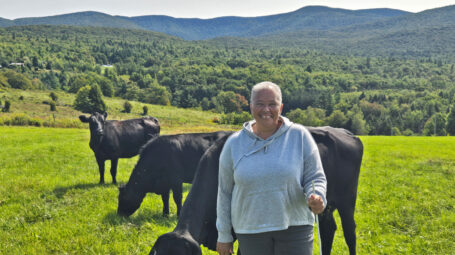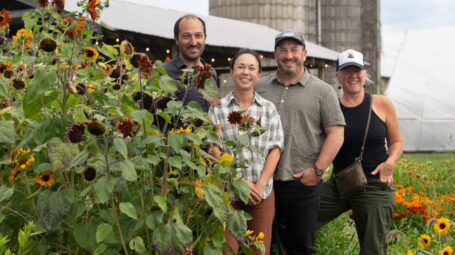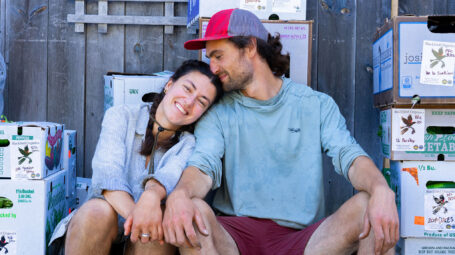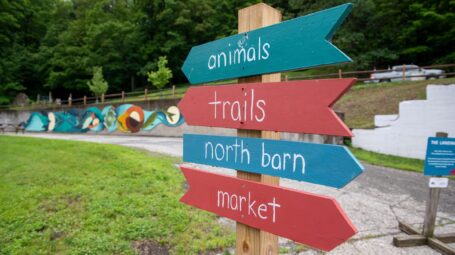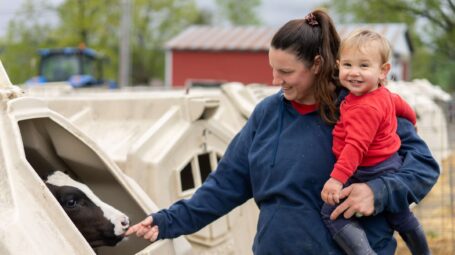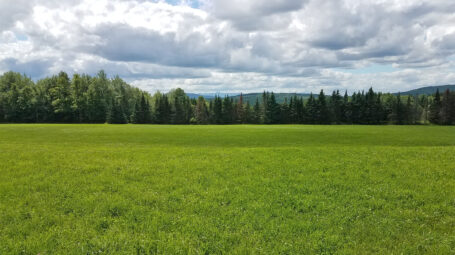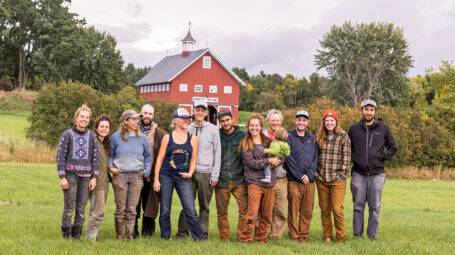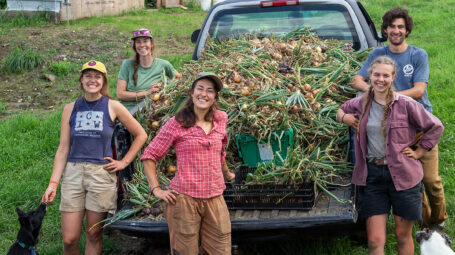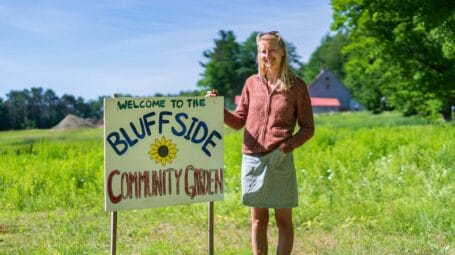Conservation helps beginning farmer secure 80 acres and expand into cheesemaking
“Prime agricultural land is so vulnerable to development,” said first-generation farmer Becca Knouss, reflecting on her motivations for conserving 82 acres of farmland in the Pleasant Valley area of Bennington. “Protecting it through conservation ensures it stays open and accessible for farming, now and in the future.”
For Becca, land conservation is the realization of a vision she’s pursued for nearly a decade. What began with a few goats and rented land has grown into The Goat Project, where she produces raw goat milk and goat-milk soaps. Now, thanks in part to funds from the conservation effort and a grant from the State of Vermont, she’s preparing to expand into cheesemaking.
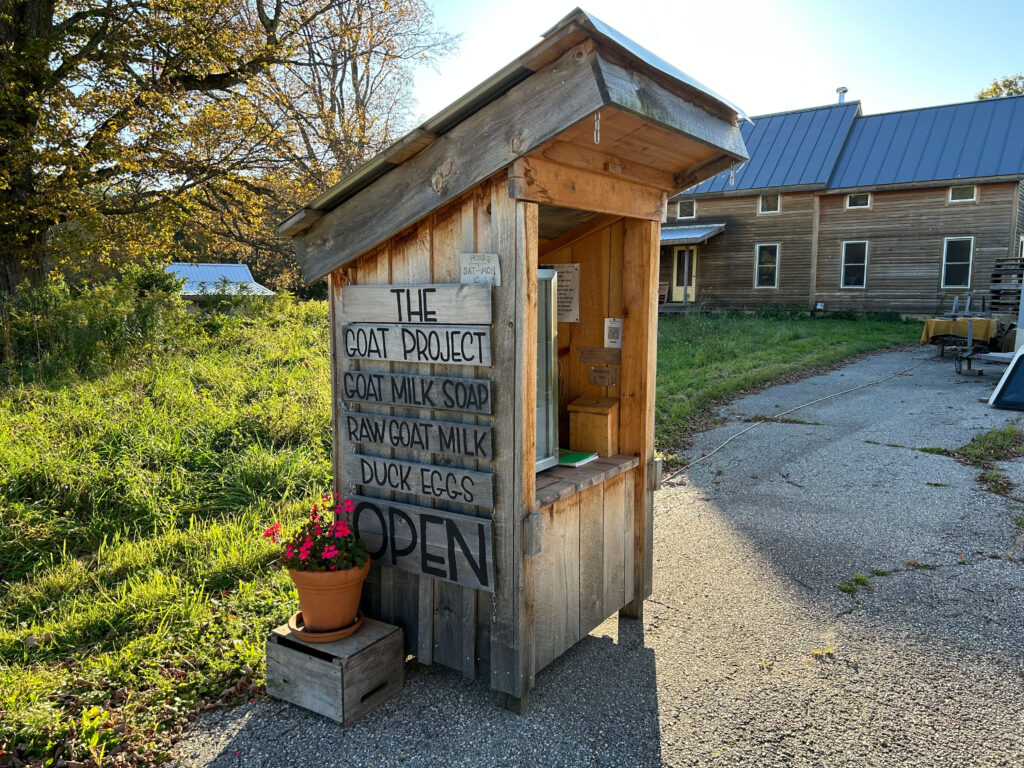
Becca produces raw goat milk and goat-milk soaps. Thanks in part to funds from the conservation effort and a grant from the State of Vermont, she’s preparing to expand into cheesemaking.
Making farming accessible for first-generation farmers
Becca’s journey into farming began with an early connection to goats. After college, she traveled to Europe, where her experiences with goats on small farms deepened her interest.
Before moving to Vermont in 2004, Becca worked with goats on several farms in New York. There, she gained hands-on experience with goat dairying and cheesemaking. She continued building her expertise in Vermont, working on vegetable and dairy farms.
By 2015, Becca acquired her first goats while renting farmland but needed more space to grow her operation. She reached out to VLT’s southwestern Project Director Don Campbell for help, who she knew through her work on local farms, and learned about a property in the Pleasant Valley area of Bennington. “It just really clicked,” Becca said. In 2016, she purchased the land with eventual conservation her long-term vision, and moved there with her husband, Vince Royce, who is a woodworker and arborist.
“It feels so much bigger than me to conserve the farm, because it just means that the land will always be open,” Becca said.
“It is very exciting to see this stellar farmland being carefully managed,” said Don. “Through intensive pasture management, Becca’s industrious goats are improving the soil, beating back undesirable species such as multiflora rose, buffering the streams and wetlands, and generally pumping life into all aspects of the land.”
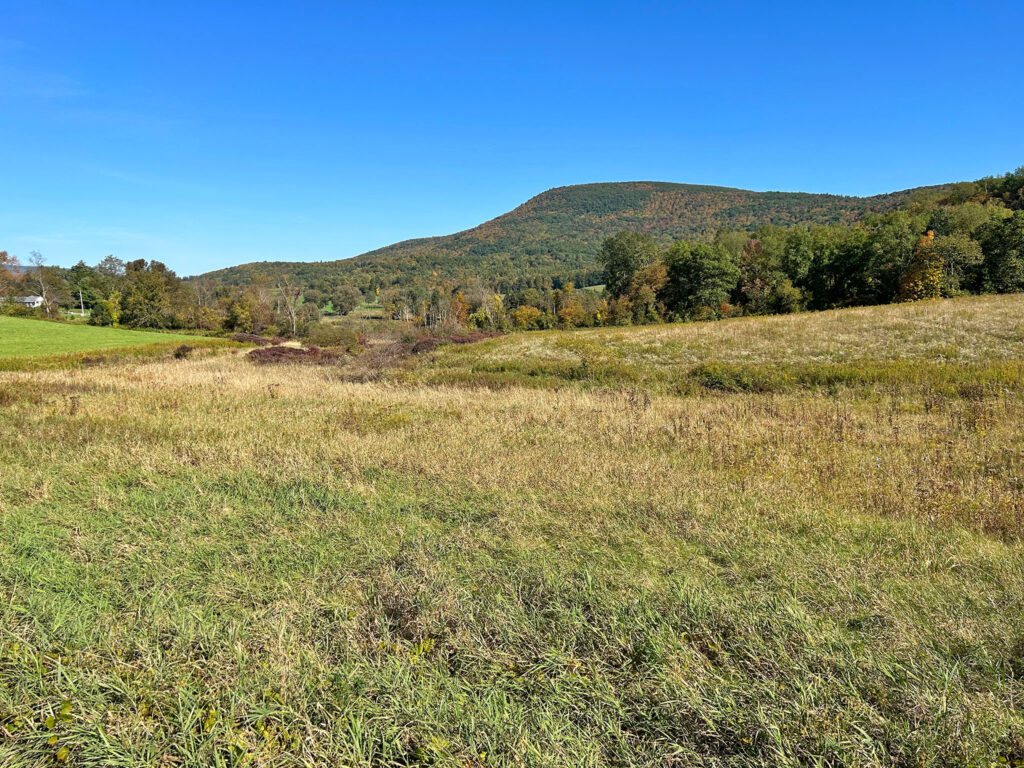
VLT’s Don Campbell says Becca Knouss’s intensive pasture management with her goats is helping to improve the soil and beat back undesirable species such as multiflora rose.
Scaling up to support the local food system
The conservation funding is already helping Becca realize her next big goal: building a cheesemaking facility. With additional support from a Working Lands Enterprise Initiative grant, she has begun constructing the creamery and plans to expand her goat herd from 25 to approximately 45 goats.
For years, Becca has focused on selling goat milk and goat milk soaps, which have helped people with sensitive skin. “I love the soap and everything it does for my community,” she said. “And I’m also looking forward to making cheese and being able to offer that as well.”
With the creamery underway, Becca aims to launch her cheese business by spring 2025, starting with fresh chevre and feta before exploring raw milk cheeses. Her products will be sold at local farmers’ markets and through partnerships with shops throughout New England.
“Conserving the farm is allowing her to invest in her business without going into debt elsewhere,” said Sara Armstrong Donegan, Farm Business Specialist at the Intervale Center. Sara has worked closely with Becca on her farm’s viability and business plans – a piece that needed to be solidified for the conservation project.
Conservation can make land more accessible for first-time farm owners. On many of VLT’s farm conservation efforts, the price of a farm has been reduced by 30-50 percent, and to date, VLT has helped get more than 120 farmers onto land of their own.
“For beginning farmers, conservation often allows for a land purchase that might not otherwise be possible,” Sara said.
Breathing new life into Bennington’s agricultural landscape
Becca’s farm is surrounded by conserved properties on nearly all sides, including her neighbor Jim Horst’s Christmas tree farm. Jim, who is 81, recalls the valley’s history, where half a dozen farms once thrived but slowly disappeared over several decades.
“We’re starting to see agricultural activity back in the valley because of her goats and the VLT involvement,” Jim said. “I’m encouraged, not just by Pleasant Valley in Bennington, but by the interest this younger generation has in mixed agriculture.”
Becca’s conservation efforts also support wildlife. Her property includes wetlands, forest, and a tributary to Brown’s Brook, creating a haven for grassland birds and other wildlife. She converted land that had been leased for cropping into pastureland, and is seeing a resurgence of birds and other species. “It just adds so much to our lives,” she said, recalling a hawk sighting during a pasture walk. “It makes me feel like we’re part of the ecosystem.”
Community-driven conservation
Becca’s conservation project is part of a larger effort to sustain Vermont’s working landscape.
“This project reflects everything we value—keeping farmland affordable, supporting local food systems, and protecting wildlife habitats,” Sara noted of Intervale’s support of the farm.
Additional conservation funding support came from the Vermont Housing & Conservation Board, the Whipstock Hill Preservation Society, and the USDA’s Natural Resources Conservation Service.
With conservation as a cornerstone, Becca is building a thriving goat dairy to nourish her community and protect the land for future generations.
“If I’m not here or my family is not here, it’ll remain open, and someone else will be able to afford farming,” Becca said.

